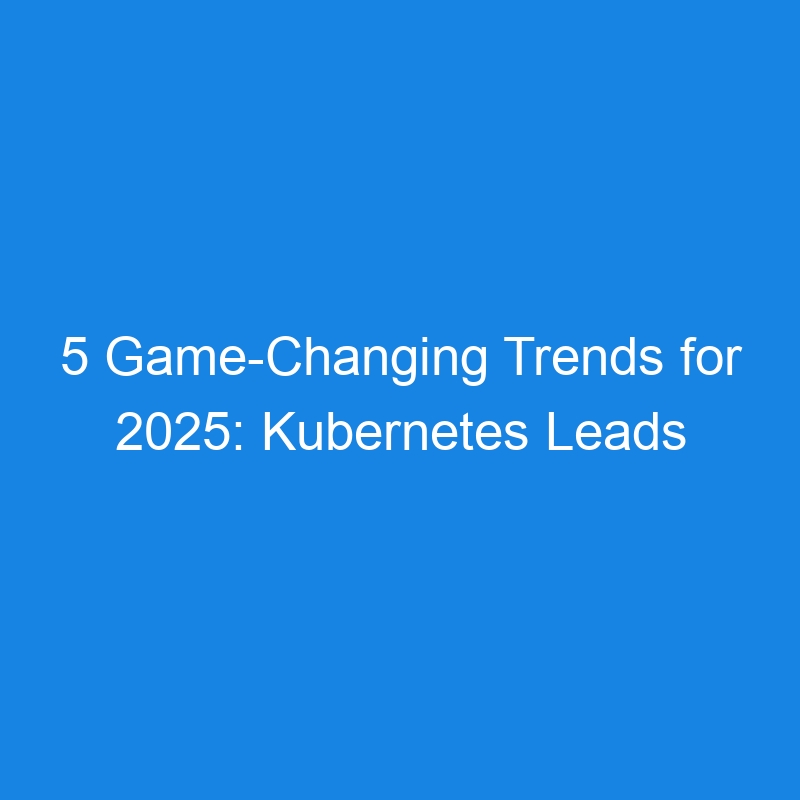
Kubernetes celebrated its 10th anniversary this year, and it is truly inspiring to see how far the technology has come. From its inception as an open source project from Google to its evolution as the de facto container orchestration platform on the market today, Kubernetes has grown by leaps and bounds in popularity and adoption, now handling mission-critical applications in organizations of all sizes, from startups to Fortune 500 companies.
Looking ahead to 2025 and the 11th year of Kubernetes, I’m struck by the massive opportunities on the horizon. The industry is evolving rapidly, driven by surging customer demand and transformative market dynamics, including generative AI.
Here are my top five predictions for 2025:
1. Generative AI Will Supercharge Software Development
AI copilots for coding, testing, debugging and managing applications will transform developers into super-developers, boosting developer velocity like never before. This surge in productivity will drive more application teams to internal developer platforms and enterprise application platforms. Kubernetes and containers will become even more critical as these applications evolve rapidly in the AI-driven software era. Speed and adaptability will be essential to avoid being left behind on the AI superhighway.
2. Agentic AI Will Transform Enterprise Operations
By mid-2025, enterprises will begin deploying AI agents across departments as large language models (LLMs) become faster, cheaper and more efficient. These agents will significantly lower operational expenses and boost efficiency, particularly in larger enterprises, where the scale of adoption can drive substantial gains.
3. Enterprise AI Will Integrate With Systems of Record
To unlock efficiency gains, enterprises will colocate generative AI stacks with their systems of record. Whether on cloud or on premises, these stacks will increasingly rely on Kubernetes and containers, which are essential for orchestrating generative AI workloads and ensuring agility and scalability.
4. Modernization Will Accelerate Under Cost Pressures
As CFOs push for leaner IT operations, CIOs and CTOs will lead aggressive modernization efforts. Enterprises will prioritize cloud-agnostic strategies, modern application stacks and agile orchestration platforms like Kubernetes. This shift will include embracing serverless technologies to reduce costs and improve agility.
5. Kubernetes Will Become the Unified Hybrid Cloud Platform
Kubernetes will emerge as the standard for orchestrating both VMs and containers, unifying cloud and on-premises environments under one API interface. This evolution will blur the boundaries between infrastructure types, creating a seamless hybrid cloud experience for enterprises.
These trends underscore why selecting the right technology can make or break an organization in our fast-moving world. Over the past 10 years, Kubernetes has proven itself as an enterprise-ready container orchestration tool, but Kubernetes needs to be paired with the right management tools to harness the full power of these new trends.
IT teams will need to consider a platform that can unify container and VM data management, while also empowering enterprises to handle workloads — whether they’re enterprise, generative AI or VM-based — at scale and across any infrastructure. Learn more about how Portworx by Pure Storage is the data platform that can do all this and more.
2025 promises to be an extraordinary year, and I can’t wait to see how we continue to innovate and lead alongside our customers.
The post 5 Game-Changing Trends for 2025: Kubernetes Leads the Way appeared first on The New Stack.
